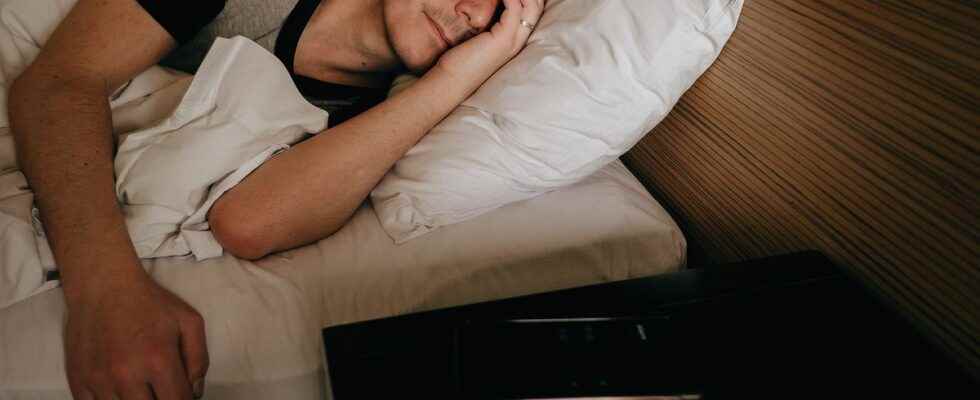Published on
Updated
Reading 2 mins.
A study conducted by Ipsos for the Idorsia laboratory reveals the impact of insomnia on daily life. Among the results, it appears that 74% of patients say they “feel frustration about their insomnia” and nearly one in two patients “shame”.
To better understand chronic insomnia, the “Impact on Sleep and Destigmatizing Insomnia Patient Survey” study was conducted between August 4 and 17, 2022 among 150 patients, aged 35 to 65, with moderate to severe insomnia. . Discover the main results.
What is chronic insomnia?
Chronic insomnia is defined as the feeling of poor restorative quality of sleep, when environmental conditions are favorable to sleep.
Chronic insomnia is characterized by a sleep disorder, a sleep maintenance disorder, an early awakening, with daytime repercussions altering psychomotor performance. In so-called chronic insomnia, sleep disturbances must be present at least 3 times a week for at least 3 months.
Chronic insomnia, an underestimated pathology
In France, it is estimated that 6 to 10% of adults suffer from chronic insomnia. It is both a common pathology but also little considered as a pathology as such. In fact, 39% of those polled indicated “have been reluctant to talk to a healthcare professional about their sleep problems“.
However, chronic insomnia can have significant repercussions on the quality of life in general and be a source of other health problems: risk of falls, accidents or increased risk of comorbidities (depression, Alzheimer’s disease, arterial hypertension, diabetes…).
The consequences of daily insomnia are significant
Beyond these risks, chronic insomnia can also weigh daily on the shoulders of those who suffer from it.
Lack of energy during the day is the main consequence reported by more than 7 out of 10 patients surveyed, before the decrease in performance at work. Indeed, 41% of employed patients said that their insomnia prevented them from performing their job to the maximum of their ability.
Its impact on romantic, friendly or family relationships is sometimes underestimated: 47% of respondents with children report an impact of their insomnia on their parenting role.
Patients helpless in the face of this situation
For nearly one in two patients questioned, the feeling that there is no psychological or medical treatment for this disease is indeed present. Three quarters of them are “frustrated” by this situation and nearly one in two even admits to “being ashamed” of it.
More than 9 out of 10 patients have tried to remedy their insomnia on their own over the past 6 months, for example by reducing their caffeine consumption or by adopting more physical activity. In addition, the patients questioned would like to have more information about this disease.
Consult a doctor online for your sleep disorders
Better understand this disease to live it better
A better understanding of the disease, both by patients and their families, would improve the management of chronic insomnia. Nearly one in two patients surveyed feel embarrassed about their insomnia and more than a third “fears that those around him do not understand that insomnia is a real disease“.
More worryingly, 39% were hesitant to tell a healthcare professional about their insomnia when they started having trouble sleeping. This hesitation to consult and talk about this disease can be associated with the preconceived ideas that persist around chronic insomnia.
